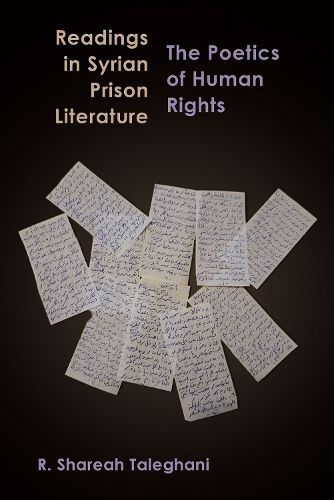Readings Newsletter
Become a Readings Member to make your shopping experience even easier.
Sign in or sign up for free!
You’re not far away from qualifying for FREE standard shipping within Australia
You’ve qualified for FREE standard shipping within Australia
The cart is loading…






The simple act of inscription, both minute and epic, can be a powerful tool to bear witness and give voice to those who are oppressed, silenced, and forgotten. In the eras of Hafiz al-Asad and his son Bashar, Syrian political dissidents have written extensively about their experiences of detention, both while in prison and afterwards. This body of writing, largely untranslated into English, is essential to understanding the oppositional political culture among dissidents since the 1970s-a culture that laid the foundation for the 2011 Syrian Revolution. The emergence of prison literature as a specific genre helped articulate opposition to authoritarian states, including the Assad regime. However, the significance of Syrian prison literature goes beyond a form of witnessing, expressing creative opposition, and illuminating the larger cultural and historical backstory of the Syrian uprising. Prison literature, in all its diversity, challenges the narrative structures and conventional language of human rights. In doing so, prison literature has played an essential role in generating the
experimental shift
in Arabic literature since the 1960s. Taleghani’s groundbreaking work explores prison writing’s critical role in resistance movements in Syria, the evolution of Arabic literature, and the development of a global human rights.
$9.00 standard shipping within Australia
FREE standard shipping within Australia for orders over $100.00
Express & International shipping calculated at checkout
The simple act of inscription, both minute and epic, can be a powerful tool to bear witness and give voice to those who are oppressed, silenced, and forgotten. In the eras of Hafiz al-Asad and his son Bashar, Syrian political dissidents have written extensively about their experiences of detention, both while in prison and afterwards. This body of writing, largely untranslated into English, is essential to understanding the oppositional political culture among dissidents since the 1970s-a culture that laid the foundation for the 2011 Syrian Revolution. The emergence of prison literature as a specific genre helped articulate opposition to authoritarian states, including the Assad regime. However, the significance of Syrian prison literature goes beyond a form of witnessing, expressing creative opposition, and illuminating the larger cultural and historical backstory of the Syrian uprising. Prison literature, in all its diversity, challenges the narrative structures and conventional language of human rights. In doing so, prison literature has played an essential role in generating the
experimental shift
in Arabic literature since the 1960s. Taleghani’s groundbreaking work explores prison writing’s critical role in resistance movements in Syria, the evolution of Arabic literature, and the development of a global human rights.